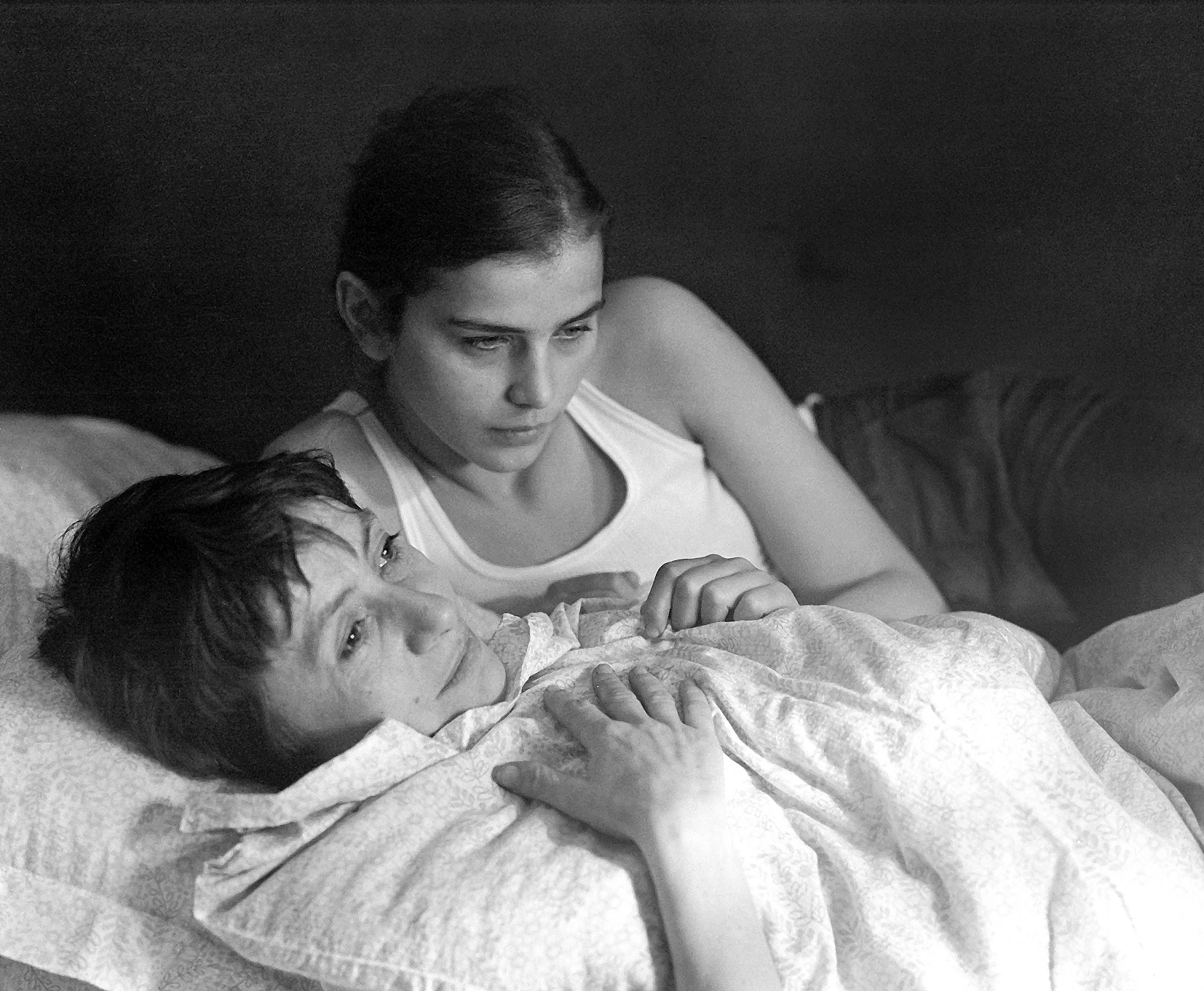'The Márta Mészáros Marvel' Adoption at the Berlinale Classics
This film opened a window to filmmaking in Europe and the world: compared to other Hungarian films it threw new light on Hungarian reality from the perspective of women’s souls and women’s relations. For the first time it expressed that moment of self-awareness when the need for transformation presents itself in a woman, when she desires to alter her fate.
The director, written about globally as the ‘Márta Mészáros marvel’, has a profound understanding of reality. Even as a young child she had struggled with being an orphan, with hunger and with the vicissitudes of history. The Kossuth and Prima Prize laureate director, winner of awards at Berlinale, at Chicago and at numerous other international festivals, was born in Budapest in 1931. Her father, the avantgarde sculptor László Mészáros, in fleeing fascism moved the family to Kirgizia, where at the outbreak of World War II fell victim to Stalin’s purges. Her mother also died. She was placed in a Soviet orphanage and only returned to Hungary after the war. Between 1954–1956 she studied at the Moscow film academy and until 1968 made documentaries in Romania and Hungary. These autobiographical motifs inspired the internationally acclaimed Diary series.

Márta Mészáros: Adoption
Together with her contemporaries Agnès Varda, Larissa Shepitko and Věra Chytilová, she ranks as one of the most significant female filmmakers in the world. Her first full-length film was The Girl (1968). In Don’t Cry, Pretty Girls, Riddance, Adoption, Nine Months and The Two of Them Márta Mészáros depicts – in a non-judgemental way and with puritanical unaffectedness – that process whereby something great and simple happens in the life of her self-aware, seeking-rebellious female protagonists, forcing them to make decisions. These films were instant international hits. Nine Months took an OCIC prize at Berlinale and a FIPRESCI prize at Cannes (1977). The Heiresses, made in a co-production, reveals a historical background behind remarkable love triangle relationships. Then came the Diary tetralogy, of which the first, Diary for My Children, won the Grand Prix Speciale du Jury at Cannes (1984).
With 30 feature films and numerous documentaries to her name, the director also made a movie, Unburied Man (2004), about Imre Nagy, the leading figure of the 1956 Hungarian Revolution. Her latest critically acclaimed film, Aurora Borealis (2017), looks back at the Soviet occupation of Vienna through an unusual mother-daughter fate.
In her fifth film Adoption, Márta Mészáros, in a mature and lean style, speaks about the opportunities and relationships of women; about loneliness, the lies involved in relations between men and women, about vulnerability and about life within institutions.
She wrote the screenplay with Miklós Jancsó’s regular writer, Gyula Hernádi, and his first assistant, Ferenc Grunwalsky. Secretive internal tension and sadness, both subjects of the film, are fundamentally inherent in both of Mészáros’ actresses, Kati Berek, who plays the lead role, and the amateur Gyöngyvér Vígh. However, the freedom that cannot be broken still radiates from both artists.

Márta Mészáros: Adoption
A widowed working woman in her early forties would like to escape the emptiness that surrounds her by having a child with her married lover. Spiritually, the man is not involved in this relationship, he is confused, but Kata faces up to her own emotional vulnerability. One day, a girl who has run away from a home seeks shelter with her. Anna’s desperate want of a mother and love shocks Kata into the realisation that she has to change her life. She helps the girl leave the institute and marry the boy she loves. Kata then adopts an infant from the institute.
The films by Mészáros differ from those of the contemporaneous ‘Budapest School’ in that she doesn’t concentrate on the social background, showing only as much of the microclimate as is psychologically necessary. In this style she termed ‘quasi-realistic’, through the finely wrought images of Lajos Koltai, the faces communicate all the stress that neither man nor woman is capable of voicing. The ambiguity, hardness, passion and curious similarities in the relationship between the two women are drawn with expressive facial lines and in the eyes. Kati Berek’s neutral gaze from the run-down worker’s hostel window is a universal portrait of hopelessness. The landscape is depopulated, of multiple tones of grey. The unexpected arrival of the absconding girls materialises out of the grey mist. Anna’s sincerity gives Kata the opportunity to taste the painful excitement and beauty of taking care of somebody else. The two women free each other from their respective hopeless situations. However, the end of the film does not emphasise the happiness but instead the uncertainty. Young Anna weeps at her own wedding while the ageing unmarried mother Kata leaves with her infant for the distant bus stop in a perplexed state.
According to Jean Baroncelli, the legendary critic of Le Monde : “The Márta Mészáros marvel is the marvel of acute vision and sensitivity, the marvel of a woman who speaks of her fellows in a way that not a single man is able to (perhaps with the exception of Bergman)”. (Le Monde , 14 May 1980)
Eszter Fazekas
